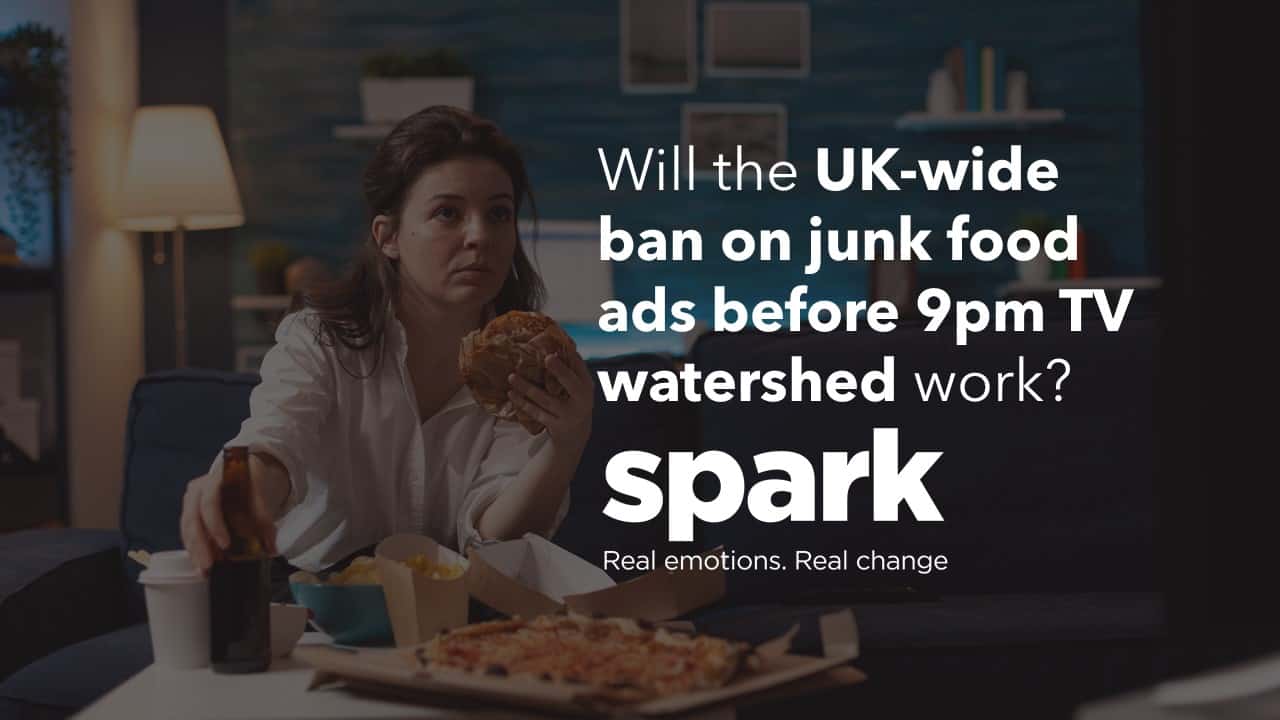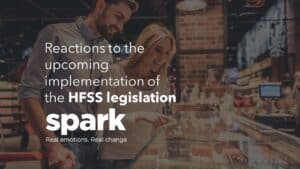From the end of next year, new rules around junk food ads on TV will come into play. Adverts for products deemed to be high in fat, salt, and sugar (HFSS) will be banned before the 9 pm watershed.
Paid-for ads on sites including Facebook and Google by big brands will also be banned. However, companies can continue to promote goods using their own blogs, websites, apps, or social media pages.
Why the ban?
These changes are coming in, in light of the obesity crisis in the UK which is costing the NHS over £6.1 billion annually. It is hoped that these measures will drastically reduce this figure and improve health, especially amongst young people where it is shown that one in three children leave primary school overweight or obese.
Learn about how brands are preparing for the new HFSS legislation by clicking here or on the image below;
Why the ban could work?
The content that young people see can have a huge influence on the choices and habits they form. These behaviours are a result of multiple factors, but two interrelated principles include:
1. Exposure
We prefer things that we have been exposed to in the past, and our preference increases as our exposure does. This means that the more children are exposed to junk food, the bigger their preference for it will become. Product preference has been shown to occur with as little as a single commercial exposure and to strengthen with repeated exposures. So, by reducing this exposure (which will be the outcome of the ban) to unhealthy foods, we are reducing preference for them.
2. Mirror neurons
A mirror neuron is a neuron that fires both when an individual acts and when they observe the same action being performed by another.
In other words, if a child sees somebody eating unhealthy food on TV, then their mirror neurons will be activated, and they will feel a desire to ‘mirror’ what they see. This concept goes hand in hand with exposure, if we reduce what people see others do, then they will feel less compelled to do it too.
However, this drastic ban on ads may not be as impactful as it sounds…

Why it might not work
There is some controversy around the rules of this new ban as many people have said there are too many exemptions for it to truly be effective. For example, brand-only is still allowed. This means that fast-food chains such as McDonald’s can still advertise the brand before 9 pm, but they cannot show any HFSS products, which, by the way, chicken McNuggets are not so they can still be shown.
Unfortunately, showing a brand instead of the unhealthy products they sell won’t have much of an impact at all, and this is because of association. Brand association is when company traits are rooted in customers’ minds, so even if all we see are logos, we will associate them with the brand’s products
Summary
The new ban on adverts promoting HFSS foods before 9pm is a step in the right direction for tackling obesity in the UK. However, the rules have been criticised due to the many exemptions, making the plan seem a little half-hearted. Reducing children’s exposure to unhealthy foods is a great start to waving goodbye to child obesity but is this a case of too little too late?
How we can help
At Spark Emotions, our team of industry experts and consumer psychologists can help you get to the real truth behind consumer behaviour. Our research team can provide practical insights gained from real behaviour to better grow your business. If you want to know how we can help you then get in touch.

Written by Evie Harris-Jenkins, Research Executive at Spark Emotions.
If you have any questions, feel free to reach out to Evie via email evie.harris-jenkins@sparkemotions.com or connect on LinkedIn







One thought on “Will the new hfss legislation banning junk food ads before 9pm work”
Comments are closed.